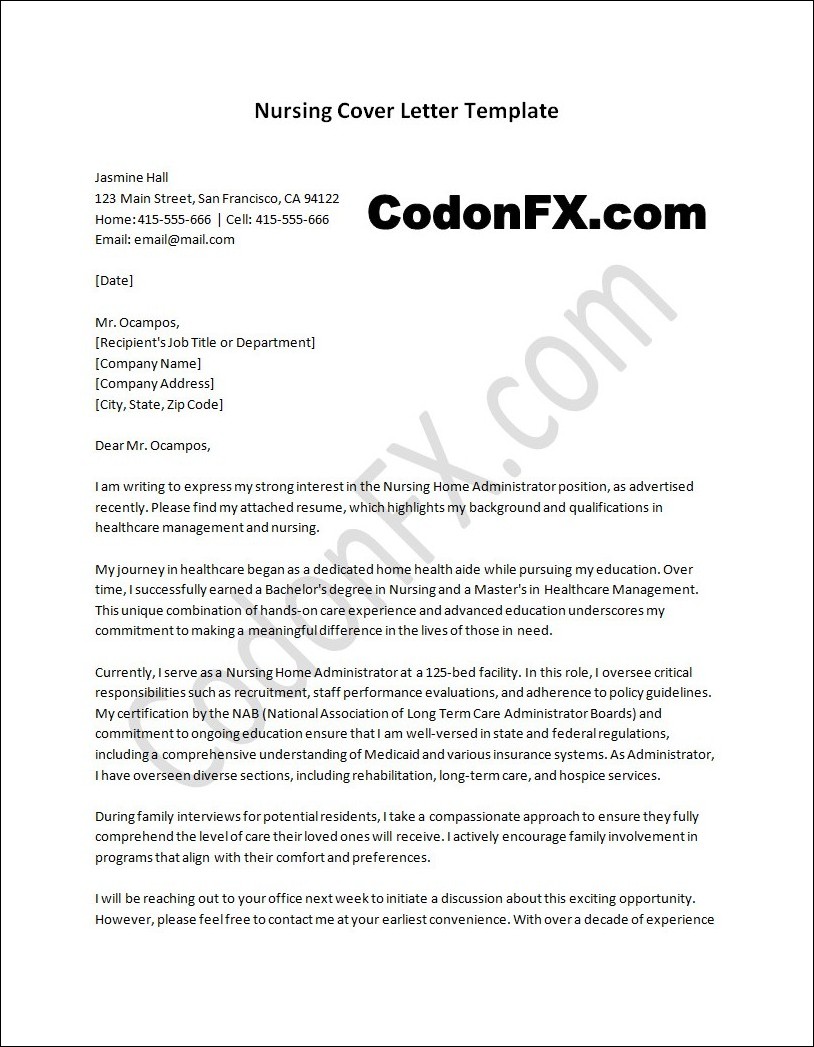
Do I need a cover letter for the nurse job?
A cover letter is an essential part of any job application, including for nurse positions. It serves as a personalized introduction to your skills, qualifications, and experiences, allowing you to stand out from other applicants. A nursing cover letter provides you with an opportunity to showcase your passion for patient care, your knowledge of the healthcare industry, and your ability to communicate effectively. It complements your resume by providing more context and highlighting specific aspects of your background that align with the requirements of the job.
The purpose of a nursing cover letter is to demonstrate your genuine interest in the position and the organization you are applying to. It allows you to explain why you are a suitable candidate for the role and how your skills and experiences make you a valuable asset to the healthcare team. In addition, a well-written cover letter can help you address any gaps in your resume or provide explanations for career changes. It also allows you to express your enthusiasm for the nursing profession and your commitment to providing quality patient care.
Benefits of Writing a Nursing Cover Letter
Writing a nursing cover letter can have several benefits that can enhance your chances of securing a job in the competitive healthcare industry.
- Showcase your qualifications: A nursing cover letter allows you to provide more details about your qualifications and experiences than what is typically included in a resume. You can customize the cover letter to match the specific requirements of the job you are applying for and highlight your relevant skills, certifications, and educational background.
- Express your enthusiasm: A nursing cover letter provides an opportunity for you to express your enthusiasm for the nursing profession and the specific job you are applying for. You can explain why you are passionate about nursing and what motivates you to provide quality care to patients. This can help you stand out from other applicants and demonstrate your commitment to the field.
- Address potential concerns: If you have any gaps in your employment history or other potential concerns, a nursing cover letter allows you to address them directly. You can provide explanations or highlight your efforts to improve your skills during that time. This shows your honesty and willingness to take responsibility, which can go a long way in building trust with potential employers.
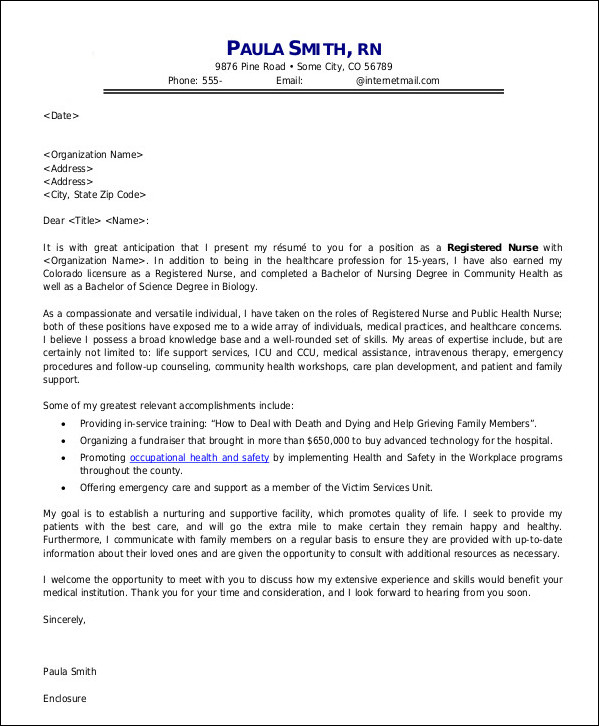
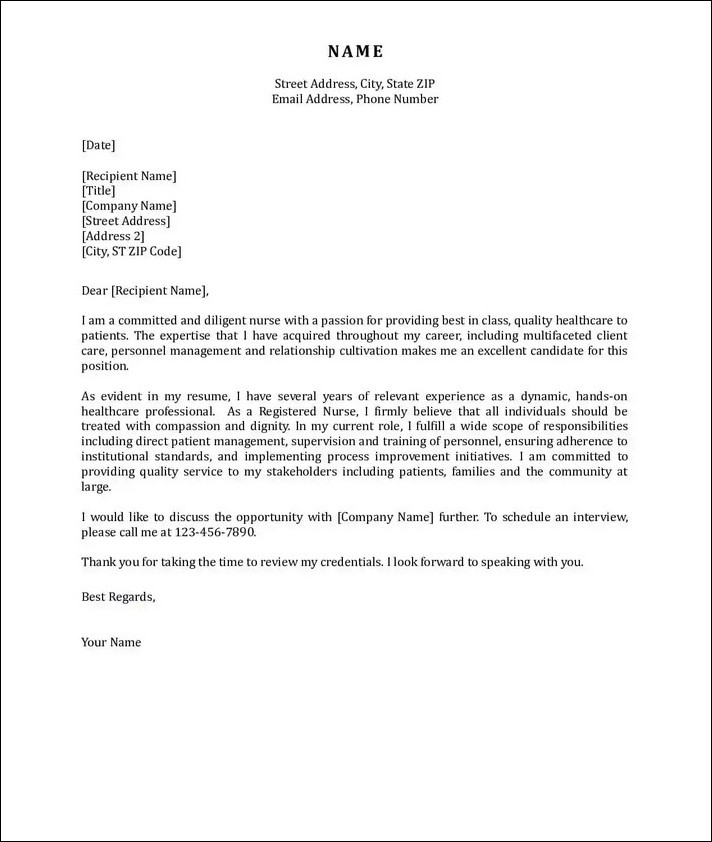
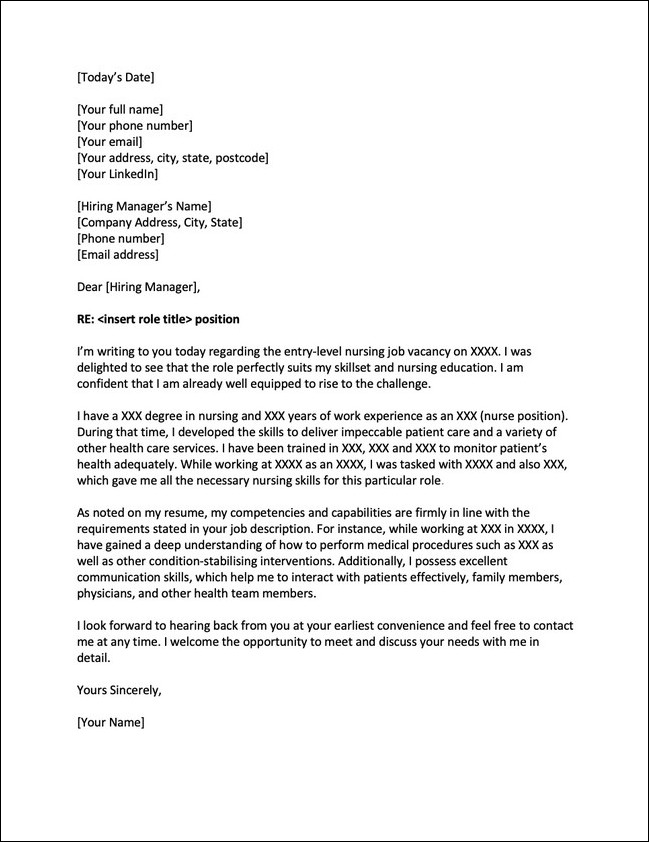
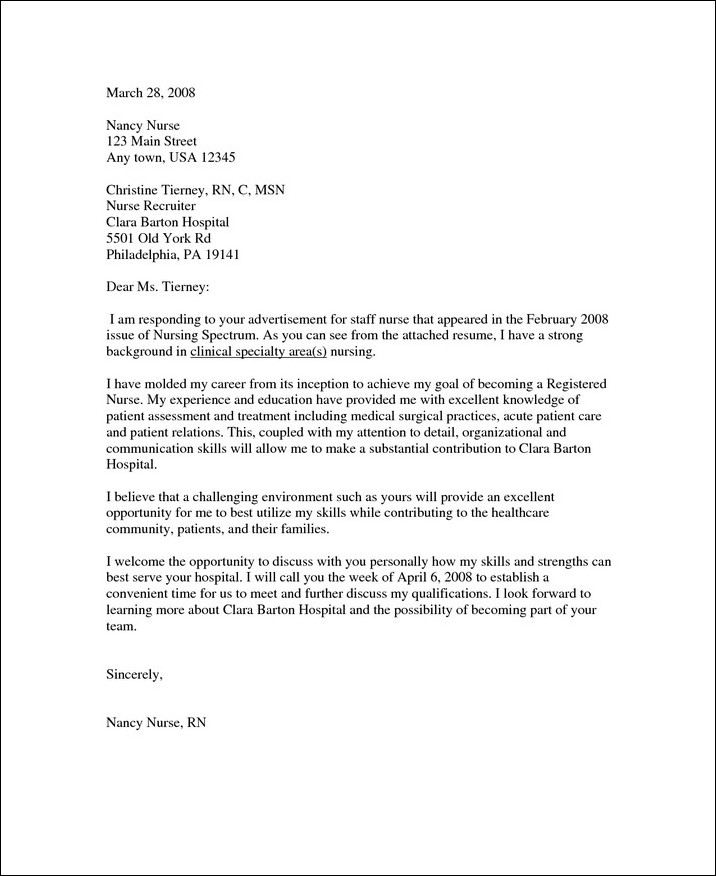
How do I write a good cover letter for nursing?
When it comes to writing a good cover letter for a nursing position, there are a few key elements that can help you stand out from the competition.
- Address the letter to a specific person: By addressing the letter to a specific person, you show that you have done your research and are genuinely interested in the position.
- Highlight relevant experience and skills: Emphasize your clinical rotations, certifications, licenses, and ability to handle high-pressure situations to demonstrate your readiness for the nursing role.
- Convey passion and dedication: Use your cover letter to express your genuine passion for nursing and your commitment to providing exceptional care to patients.
- Proofread for errors: Always proofread your cover letter for any spelling or grammatical mistakes to ensure a professional and polished final product.
When Nursing Cover Letters Are Required?
It is important to note that not all nursing job applications require a cover letter. So, when are nursing cover letters required? Let’s explore the different scenarios.
1. When requested in a job listing
Many nursing job listings explicitly state that a cover letter is required as part of the application. This is typically mentioned alongside other required documents such as resumes, certifications, and references. In such cases, it is crucial to submit a well-crafted cover letter that highlights relevant qualifications and demonstrates why you are the perfect fit for the position.
2. Referral for a position
When applying for a nursing position through a referral, it is often considered professional etiquette to include a cover letter. Referrals indicate that someone within the organization has recommended you for the role, and a cover letter helps personalize your application. It provides an opportunity to express gratitude for the referral, explain your interest in the position, and emphasize how your skills align with the organization’s values and goals.
3. Applying directly to a specific person
In some cases, nurses may have the opportunity to apply directly to a specific person, such as a nurse manager or director. When applying in such circumstances, a cover letter becomes crucial as it allows you to address the recipient directly, showcase your knowledge about the organization, and express your genuine interest in the position. This personalized approach can leave a lasting impression and increase your chances of being considered for the role.
Nursing Cover Letter Template | Word – Download